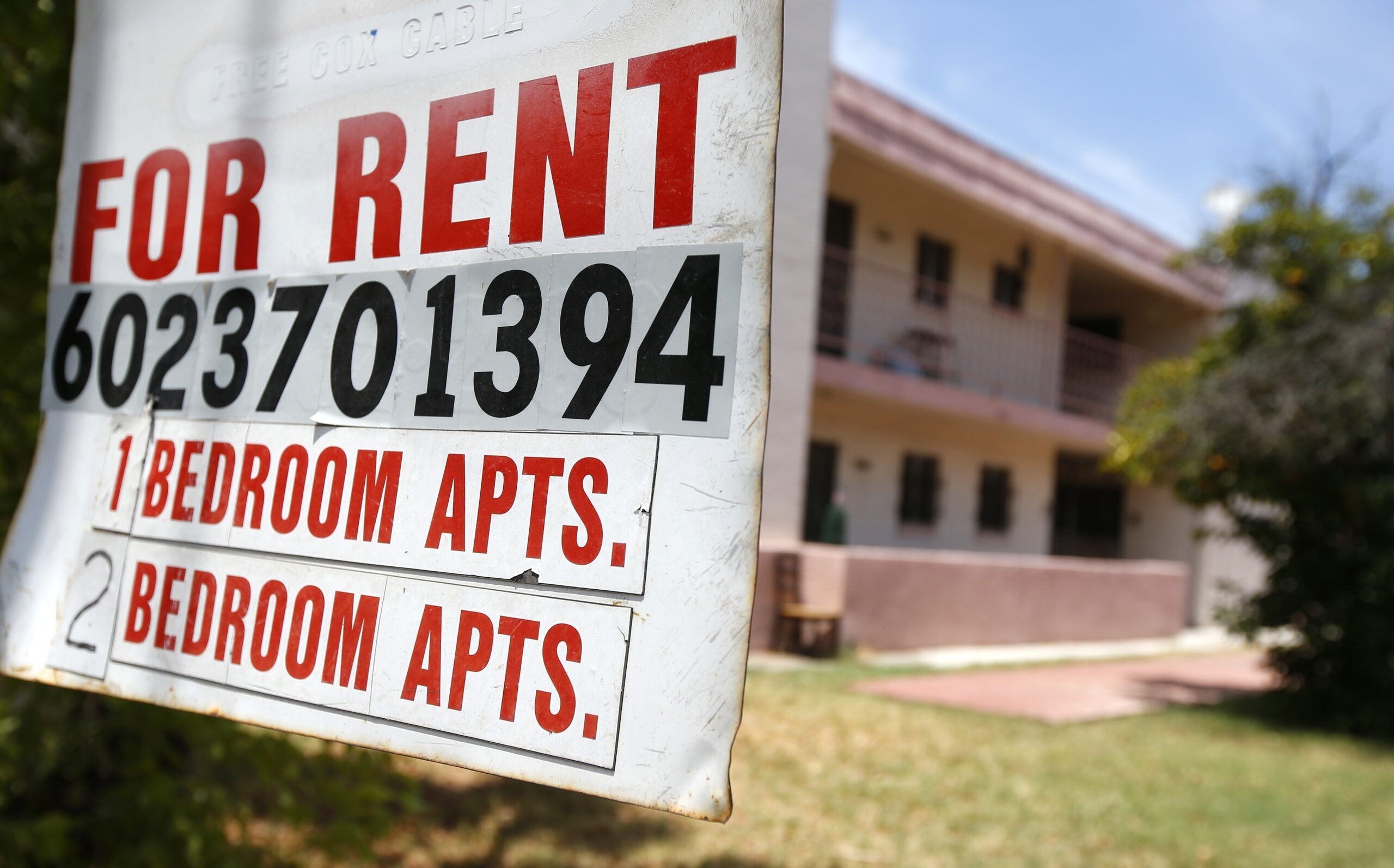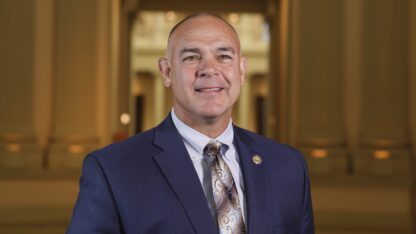When Deajahnai Wright moved into her place, she was excited. The apartment in the East Point complex called the Park at Galaway is her first. She’s 19.
It has enough space for her and her three kids.
“My boys, they have their room. And then my daughter, she’s only eight months, so she still sleeps in the bedroom with me,” she said.
But just months later, it’s already unclear if she and her kids can stay.
The pandemic happened. Her landscaping job let her go. When she hoped she might find another job, her kids’ school shut down, leaving her without child care.
Wright said she tried to explain her situation to management staff. Their response was a notice on her door last week. She said her neighbors had one too.
“Literally it was a whole line of us, where we had those papers on our door telling us that we have to pay,” she said.
Wright said she asked for help. Now she’s facing eviction.
According to recent data released by the U.S. Department of the Treasury, however, her property management company is getting help.
Blue Magma Residential qualified for a loan through the federal Paycheck Protection Program, which Congress set up for small businesses during the COVID-19 outbreak.
The company is receiving $1-2 million. As long as it doesn’t lay off or cut the salaries of its employees, it doesn’t have to pay the loan back.
Among the apartment complexes with the most eviction filings in Fulton County during the pandemic, WABE found three, including the Park at Galaway, are managed by companies participating in the program.
The other two are Ventron Management, which manages the Embarcadero Club in College Park and accepted a $2-5 million loan, and First Communities Management, which manages the Gardens at Camp Creek in South Fulton and got a $350,000-$1 million loan.
There’s nothing in the program that prevents these companies from participating and filing evictions at the same time. This is all legal.
To Georgia State University professor Dan Immergluck, it’s still wrong.
“It doesn’t make sense,” he said. “We give them millions of dollars in grants. They shouldn’t be evicting people.”
He said allowing these companies to file evictions at these apartment complexes contradicts the federal government’s other efforts.
Congress passed an eviction moratorium during the pandemic. It prevents landlords with other kinds of government-backed loans from trying to force their tenants out.
Immergluck said the same should apply to management firms receiving these small business loans, especially since they’re forgivable.
“So you could actually argue that they should be doing more than the other recipients of federal assistance,” he said.
These eviction filings may not translate into actual evictions. Fulton County has postponed in-person hearings until November because of the pandemic. Without hearings, judges won’t approve landlords’ requests for eviction.
Records also show several of these cases, which date back to March, are already closed. That could be because the tenant has paid the past due rent, and the complex decided to dismiss the case.
Still, even eviction filings, which are the start of the process with the court, are public record, whether they are dismissed or not. They can show up in tenants’ backgrounds when they search for a new place.
“The other thing is it suggests kind of a pressure on these families, as soon as courts open that they can be displaced,” Immergluck said.
WABE reached out to the three different management companies, who received these forgivable loans while filing dozens of evictions.
Two, First Communities and Ventron Management, responded and said that they are not the owners or landlords of these properties. They are collecting rent on behalf of the actual owners.
Ventron Management, which operates the Embarcadero Club, an apartment complex that has filed for more than 90 evictions since Fulton County paused hearings, said that it wanted residents to stay in their homes.
It said the eviction filings are automatic if the tenant has not paid rent or made arrangements with management by the 10th day of nonpayment. The company also said it had shared job opportunities and offered residents payment plans during the pandemic.
The Park at Galaway, where Deajahnai Wright lives, did not reply to emails or voicemails. But Wright said the apartment complex did offer payment plans, too. The problem is, they were only available to people on unemployment. She still hasn’t received hers yet.
Now she’s not sure what to do. Wright is from Nebraska. She moved to Georgia to live in foster homes. She doesn’t have family here to lean on.
“It’s not too many people you can call and ask for favors because they have to pay [their] rent,” she said.
Wright has to figure this out for herself and for her three kids.










